From Tilling the Soil to Traveling Internationally
What extraordinary educational experiences should your child have?
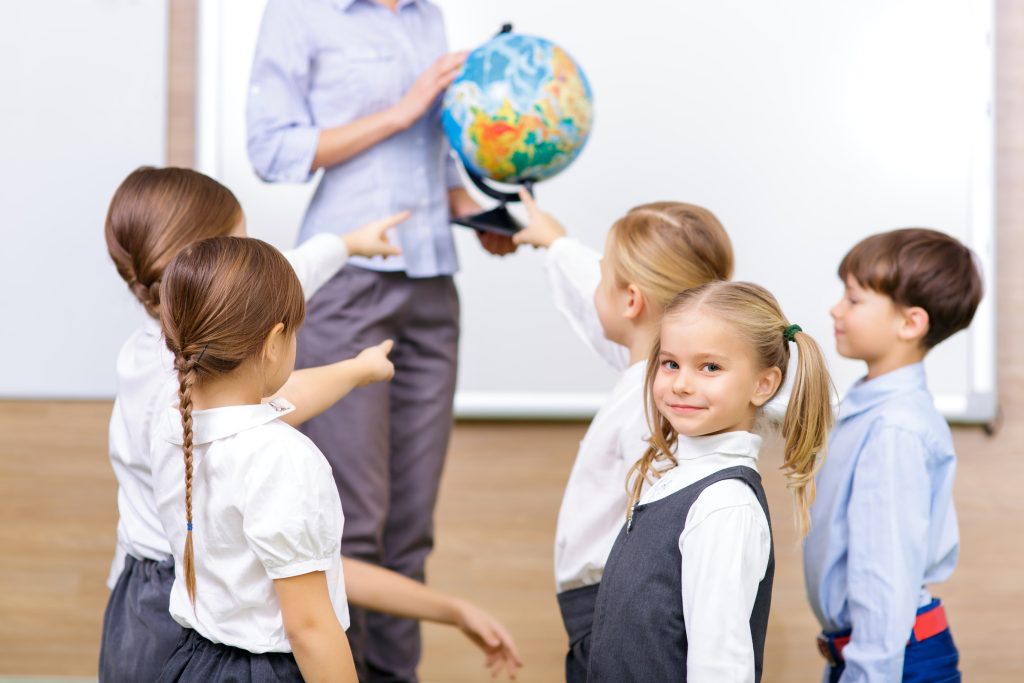
What are area schools offering that’s special? We asked and found a surprising variety of options. Several schools emphasize their global outlook. Others feature environmental studies, equestrian activities, mountaineering, music and more.
As parents, you’ll find a lot to think about as you design your child’s ideal education.
Environmental Science
“Our science program is designed to cultivate not only critical thinking and scientific knowledge, but a deep reverence for the natural world,” said Chris Wills, Assistant Head of School for Program and Community at Westtown School. “We believe students should engage with real-world problems, develop a sense of ethical responsibility in their discoveries, and connect their learning to the broader wellbeing of the world around them.”
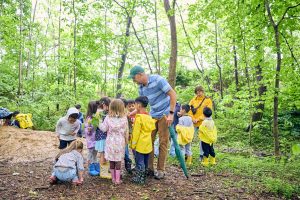
Westtown students may begin in lower school by growing food, studying soil and taking responsibility for campus-wide composting and recycling. In middle school, they engage in fieldwork and engineering projects — designing hydroponic systems, experimenting in the greenhouse, and building connections between environmental, physical and life sciences.
Then in upper school, students conduct original studies and apply their knowledge in tangible, impactful ways. The curriculum invites students into a relationship — with the land, with one another and with their role as change-makers.
Westtown’s campus itself — 600 acres of woodlands, wetlands and working farm — is an essential part of “the classroom.” Whether collecting stream samples, managing compost or harvesting produce from the farm, students are immersed in experiences that challenge, inspire and ground their learning in the real world.
Global Leadership
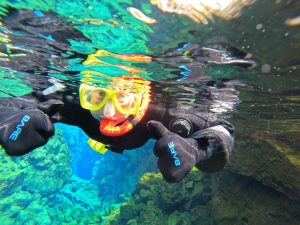
There’s a wide variety of international programs at Notre Dame de Namur, a girls’ school in Villanova. Nora Moffat, Director of the Center for Global Leadership, said every Notre Dame student should “think critically, lead with purpose and engage confidently in an interconnected world.”
The global leadership center coordinates the school’s travel programs, sends students to leadership and global education conferences, organizes families to welcome international visitors and runs its pen pal programs. The goal is to improve interpersonal and intercultural communication and to instill practical skills like managing time zone differences and virtual meeting etiquette.
The center also conducts Notre Dame’s international symposia. For instance, in 2023, it brought over 80 students from five countries together for a week of STEM classes, cultural excursions and friendship building.
Much of center’s work involves Notre Dame’s seven sister schools, located on four continents. Its exchange program, for example, enables a small group of its students to travel to a sister school’s city and stay with a host family. Students select a research topic, witness the topic in action, and interview local people and experts. When they return, the students present their findings to the school.
International Exchange

Sacred Heart Academy, an all-girls school in Bryn Mawr, also offers an exchange program. Usually conducted for two to three weeks around spring break, this program enables students to travel to another school — over 150 school options in 41 countries — to stay with a family and explore the culture and everyday life of students their age. The program is reciprocal, with exchange students doing the same here.
Kim Trinacria, Interim Associate Head of School who runs the program, said the central idea of the exchange is to enrich students’ lives and prepare them for a global world, teaching responsibility and the importance of service. (In the upper school, students are required to perform 25 hours of service each year.)
International Baccalaureate Program
The International Baccalaureate Diploma Programme (IB) is often considered the highest standard for college preparatory education, according to Edward Gallagher, Assistant Head of School at Wilmington Friends School (WFS). Today, WFS is one of the only schools in our area offering the IB.
This program emphasizes academics, global perspective, informed and engaged citizenship, respect for others and the active application of classroom experience. Students can participate in the IB Diploma Programme in their junior and senior years. They work in six academic areas: a class called Theory of Knowledge; an extended essay project; and participation in community service and activities such as sports, the arts, and civic and school organizations.
About half the WFS students take IB courses without pursuing the IB degree. Many colleges grant credit for IB course-work, including all the Ivies, Stanford, Cal Tech and MIT, among others.
Extraordinary Experiences
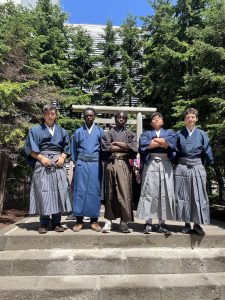
Church Farm School, a boys’ boarding and day school in Exton for grades 9 to 12, is dedicated to providing “Experiences Outside the Ordinary.” Tiffany Scott, Associate Head of School, said about a third of the students currently participate in these experiences. By 2030, she’s striving for 100% participation.
As examples, some students may spend a semester at the High Mountain Institute in Colorado, developing backpacking and hiking skills, as well as “fostering leadership, intellectual growth and a deep connection to nature.” Others may attend the Island School in the Bahamas, where they’ll “study ecosystems and engage in interdisciplinary studies, environmental stewardship and community participation.”
Students also participate in summer abroad experiences — language learning, community service, cultural exploration — in countries like Spain, France, Japan, Ecuador and the Galapagos Islands.
At Yale or the University of Pennsylvania, Church Farm students may join those from other high schools to study science, technology, economics and other subjects.
The Music Conservatory
Music is a core part of the curriculum at Villa Maria Academy, a girls’ school in Malvern. Beginning in 5th grade, students may study at its conservatory under highly accomplished musicians, including Leah Kim-Tomlinson, its director and founder.
As part of the curriculum, Ms. Kim-Tomlinson teaches music theory and ear training. Music theory, she said, “is like the grammar of music. It helps us understand how music works — how notes, chords, rhythms and melodies are put together to make a piece of music.” Ear training is “about training your ears to recognize music by listening. You learn to hear the difference between notes, intervals (the distance between notes), chords, rhythms and more. It helps you play music by ear, sing in tune and become a better overall musician.”
Other instructors in the conservatory include a Steinway Artist — a prestigious title that recognizes the most exceptional music performers in the world — and six others.
Equestrians
Perhaps your daughter is in love with horses. Then Linden Hall, a girls’ school in Lititz, may be the school for her. It offers a comprehensive foundation in riding and horsemanship.
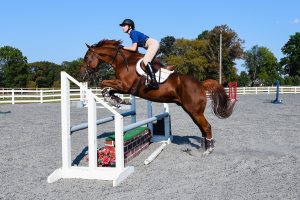
All Linden Hall riders have access to clinics with outside professionals and quality instruction. In addition to competing in a wide array of horse shows, the school’s varsity and junior varsity equestrian teams have competed at many national competitions, including the U.S. Equestrian Federation, U.S. Eventing Association and the Interscholastic Equestrian Association.
Head of School Dr. Shauna Carter said, “For over 100 years, the Linden Hall equestrian program has shaped girls into confident riders, compassionate leaders and responsible caretakers of themselves, their horses and our school community. Through this tradition, students also form lasting bonds within the riding community and carry forward life skills that reach far beyond the stables and ring.”
Montessori Approach
For a Montessori-inspired approach for very young children, the Walden School in Media is an option. Children may enter at 2 years, 7 months and “graduate” in 5th grade. Vital to its curriculum, the school provides instruction and learning opportunities that meet each child’s needs. Classrooms are shared by multiple grades.
By combining grades, teaching critical thinking and effective communication, and by blending individual instruction, group lessons and self-directed activities, the school develops the students’ leadership skills and empathy. Students both teach and learn from one another. They make choices, solve problems and work autonomously, cultivating confidence and a strong sense of responsibility.
According to Erika Siegfried, Director of Communications and Development, the school has recently been accepted to deliver the International Baccalaureate Primary Years Programme that teaches children through experiential, inquiry-based learning with global citizenship in mind.
So, which school is the best fit for your child? These programs are only examples of what our local private and independent schools offer. If your child is wandering in his or her education or has a definite focus, either way, these schools offer attractive options.
Our Favorite Resources
- Berk Hathaway Holly Gross
- Berk Hathaway Country Prop
- Chester Cty Community Fdn
- Chester Cty Hosp, Penn Med
- Chester Cty Library System
- Colonial Theatre
- Delaware Museum of Nat & Sci
- Key Financial, Inc.
- King Construction
- Mercedes Benz
- Osher Lifelong Learning
- Ron’s Original
- Tim Vaughan
- West Chester BID
- Walter J. Cook
